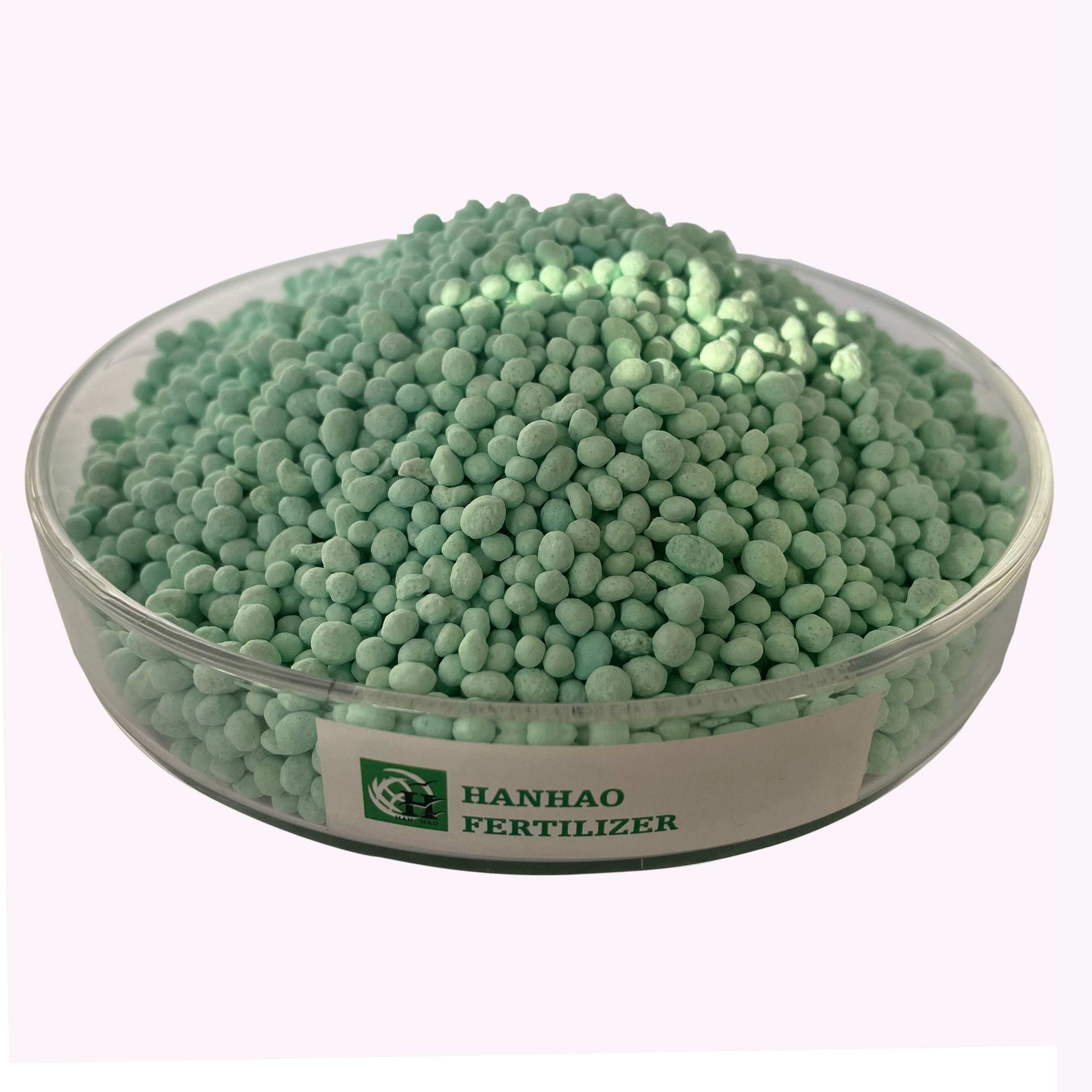
Août . 25, 2023 10:07 Retour à la liste
NPK compound fertilizers: Enhancing plant growth and agricultural productivity
NPK compound fertilizers: Enhancing plant growth and agricultural productivity
In the world of modern agriculture, NPK compound fertilizers have emerged as a vital tool to support the growth and development of crops. These fertilizers, which consist of a combination of three primary nutrients - nitrogen (N), phosphorus (P), and potassium (K) - play a crucial role in enhancing plant growth and maximizing agricultural productivity. Let us delve deeper into the significance and benefits of NPK compound fertilizers and their contribution to sustainable agriculture.

Nitrogen, phosphorus, and potassium are essential elements required by plants for various biological processes. Nitrogen aids in the synthesis of proteins and amino acids, essential for plant growth. Phosphorus plays a crucial role in energy transfer processes, such as photosynthesis and respiration, while potassium is involved in regulating plant metabolism and enhancing water and nutrient transport. The synergistic effect of these three nutrients in NPK compound fertilizers ensures optimum plant nutrition, leading to healthier and more productive crops.
One of the key advantages of using NPK compound fertilizers is their ability to provide a balanced and readily available nutrient supply to plants. The careful formulation and controlled release mechanisms of these fertilizers ensure that plants receive a consistent supply of essential nutrients throughout their growth cycle. This ensures that plants have sufficient nutrition to develop healthy roots, stems, leaves, and reproductive structures, resulting in higher yields and better crop quality.
Furthermore, NPK compound fertilizers offer agronomic and economic benefits to farmers. By supplying essential nutrients in the right proportions, these fertilizers help overcome nutrient deficiencies in soils, which can limit crop growth. This results in increased crop yields and improved overall farm profitability. Additionally, the ability of NPK compound fertilizers to release nutrients gradually over an extended period can reduce the frequency and quantity of fertilizer applications, thereby minimizing production costs and environmental impact.
Moreover, NPK compound fertilizers can be tailored to meet the specific nutrient requirements of different crops and soil types. The varying nutrient demands of different plant species and the inherent nutrient deficiencies in certain soils necessitate customized fertilization practices. By adjusting the nitrogen, phosphorus, and potassium ratios in NPK compound fertilizers, farmers can optimize nutrient uptake and address specific crop nutrient needs, thereby enhancing their yield potential and crop quality.
Another noteworthy advantage of NPK compound fertilizers is their ability to improve soil health and fertility. The efficient nutrient uptake facilitated by these fertilizers can enhance soil microbial activity and promote the development of a diverse and robust soil microbiome. This, in turn, improves nutrient recycling and availability in the soil, supports beneficial soil organisms, and enhances soil structure and water-holding capacity. The long-term use of NPK compound fertilizers can thus contribute to the development of sustainable and resilient agricultural systems.
Furthermore, NPK compound fertilizers can play a significant role in global food security and sustainable development. As the world's population continues to grow, the demand for food is increasing rapidly. To meet this demand, it is imperative to increase agricultural productivity and efficiency while minimizing the environmental footprint. NPK compound fertilizers offer a potential solution by ensuring optimal nutrient availability to crops, maximizing yields, and reducing land requirements. Their use can help minimize land conversion for agriculture and protect valuable ecosystems, while still meeting the rising global food demand.
While NPK compound fertilizers offer numerous benefits, their use must be accompanied by responsible and sustainable agricultural practices. It is important to consider factors such as soil testing, crop rotation, and proper nutrient management to prevent over-application of fertilizers and minimize the risk of nutrient runoff and environmental pollution. Additionally, the adoption of precision farming techniques and advanced technologies can help optimize fertilizer application, reduce waste, and maximize resource use efficiency.
In conclusion, NPK compound fertilizers are a valuable resource in modern agriculture, supporting plant growth, enhancing crop productivity, and contributing to sustainable food production. Their ability to provide a balanced and controlled nutrient supply, improve soil health, and offer agronomic and economic benefits make them an indispensable tool for farmers worldwide. As we continue to strive for a sustainable and food-secure future, harnessing the potential of NPK compound fertilizers will undoubtedly play a vital role in achieving these goals.
-
What is the Difference Between Compound Fertilizer and Mixed Fertilizer?
NouvellesFeb.27,2024
-
Organic Fertilizer VS Inorganic Fertilizer
NouvellesDec.28,2023
-
The role of various elements in water -soluble fertilizers in grapes
NouvellesNov.24,2023
-
Which NPK compound fertilizer formula is the right choice
NouvellesSep.25,2023
-
Meeting the World’s Increasing Food Demands with Advanced Crop Nutrition
NouvellesSep.11,2023
-
NPK compound fertilizers: Enhancing plant growth and agricultural productivity
NouvellesAug.25,2023
